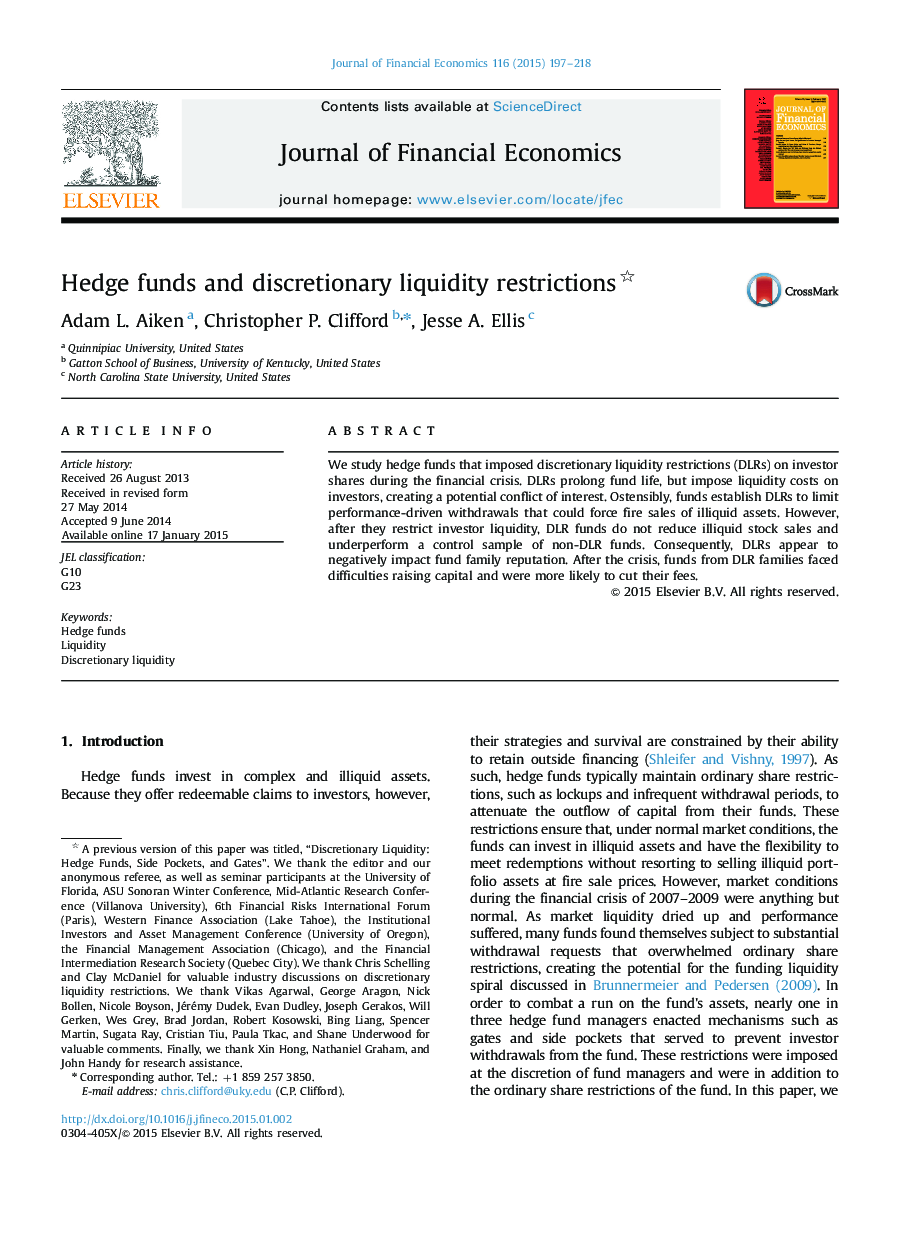| Article ID | Journal | Published Year | Pages | File Type |
|---|---|---|---|---|
| 959459 | Journal of Financial Economics | 2015 | 22 Pages |
Abstract
We study hedge funds that imposed discretionary liquidity restrictions (DLRs) on investor shares during the financial crisis. DLRs prolong fund life, but impose liquidity costs on investors, creating a potential conflict of interest. Ostensibly, funds establish DLRs to limit performance-driven withdrawals that could force fire sales of illiquid assets. However, after they restrict investor liquidity, DLR funds do not reduce illiquid stock sales and underperform a control sample of non-DLR funds. Consequently, DLRs appear to negatively impact fund family reputation. After the crisis, funds from DLR families faced difficulties raising capital and were more likely to cut their fees.
Keywords
Related Topics
Social Sciences and Humanities
Business, Management and Accounting
Accounting
Authors
Adam L. Aiken, Christopher P. Clifford, Jesse A. Ellis,
